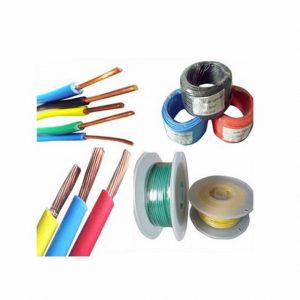In the realm of electrical wiring, the debate between the power of 12 gauge wire and 16 gauge wire has long been a topic of discussion among professionals and DIY enthusiasts alike. Both gauges have their own strengths and applications, but which one truly holds the crown as the more powerful option? Let's delve into the intricacies of these two wire sizes to uncover the answer.
1. Wire Gauge Basics:
Before we can determine which gauge is more powerful, it's essential to understand the basics of wire gauge. The gauge of a wire refers to its diameter or thickness, with lower gauge numbers indicating thicker wires. In this case, 12 gauge wire is thicker than 16 gauge wire, making it capable of handling higher electrical currents.
2. Power Handling Capacity:
When it comes to power handling capacity, 12 gauge wire reigns supreme over 16 gauge wire. Due to its larger diameter, 12 gauge wire offers lower electrical resistance, allowing it to carry more current without overheating. This makes it the preferred choice for high-power applications such as heavy-duty appliances, industrial machinery, and high-voltage circuits.
3. Voltage Drop Considerations:
Another crucial factor to consider when choosing between 12 gauge and 16 gauge wire is voltage drop. Voltage drop refers to the decrease in voltage that occurs as current flows through a wire. Thicker wires like 12 gauge experience less voltage drop compared to thinner wires like 16 gauge, ensuring more efficient power transmission over longer distances.
4. Application Specifics:
While 12 gauge wire boasts superior power handling capabilities, there are instances where 16 gauge wire may be more suitable. For low-power applications or projects with space constraints, 16 gauge wire can offer ample performance without the bulk of 12 gauge wire. It's essential to consider the specific requirements of your project to determine the most appropriate wire gauge.
5. Conclusion:
In the battle of 12 gauge vs. 16 gauge wire, the verdict ultimately depends on the power requirements and constraints of your electrical project. If you're dealing with high-power applications that demand efficient current transmission and minimal voltage drop, 12 gauge wire is the clear winner. However, for smaller-scale projects where space and flexibility are key considerations, 16 gauge wire may be the more practical choice.
In conclusion, the power of 12 gauge wire surpasses that of 16 gauge wire in terms of power handling capacity and efficiency. By understanding the nuances of wire gauge and considering the specific needs of your project, you can make an informed decision on which wire gauge is the right fit for your electrical endeavors.




+ There are no comments
Add yours